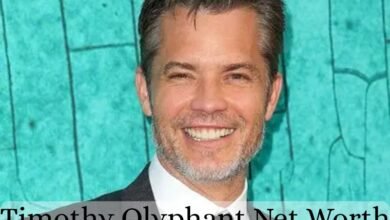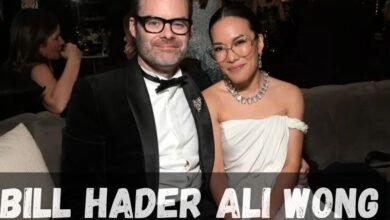
Lynne Cheney, born August 14, 1941, in Casper, Wyoming, has carved an influential path in American political, educational, and cultural life. Known not only as the wife of former Vice President Dick Cheney, she is also a prominent author, historian, and advocate for traditional American ideals and educational excellence. Her intellectual rigor, dedication to preserving historical integrity, and public service have made her a formidable figure in both political and literary circles.
This article explores her early life, academic journey, literary accomplishments, public roles, and personal convictions — weaving a portrait of a woman whose influence has stretched far beyond her title as Second Lady of the United States.
Early Life and Education
Born into a middle-class family in the heart of Wyoming’s oil country, Lynne Vincent grew up with strong values of hard work, education, and civic duty. Her father, Wayne Edwin Vincent, was an engineer, and her mother, Edna Lybyer Vincent, a homemaker. From an early age, Lynne showed a passion for literature and debate — a passion that would define much of her professional life.
After graduating from Natrona County High School, she pursued a Bachelor of Arts in English Literature at Colorado College, where she graduated with honors. She went on to earn a Master’s degree in English from the University of Colorado Boulder, and later completed her Ph.D. in 19th-century British literature at the University of Wisconsin–Madison. Her doctoral research reflected her deep interest in the moral and intellectual struggles of the Victorian era, a theme that would later influence her public writing.
Marriage and Family Life
In 1964, Lynne married Richard “Dick” Cheney, who would go on to serve as White House Chief of Staff, Secretary of Defense, and Vice President of the United States under George W. Bush. Their partnership has often been described as both personal and intellectual — a union of shared convictions and mutual respect.
The couple raised two daughters: Elizabeth “Liz” Cheney, who became a U.S. Congresswoman and one of the most influential Republican voices of her generation, and Mary Cheney, a political consultant and author known for her work on LGBTQ+ advocacy and conservative politics. Lynne’s family has often been in the public eye, navigating both political success and public controversy with dignity and determination.
Academic and Professional Beginnings
Before her national prominence, Lynne Cheney built an impressive career in academia. She taught English literature at several colleges, including Casper College and the University of Wyoming, where she was known for her engaging lectures and analytical precision. Her academic training in literature gave her a strong foundation for later roles that combined scholarship with policy-making.
Chair of the National Endowment for the Humanities (1986–1993)
One of Cheney’s most influential positions came during the Reagan and George H.W. Bush administrations, when she was appointed as Chair of the National Endowment for the Humanities (NEH). In this role, she championed rigorous standards in education and emphasized the importance of Western civilization and American history in school curricula.
Defending Intellectual Rigor
At NEH, Cheney launched initiatives that encouraged schools and universities to strengthen their humanities programs, arguing that understanding history, literature, and philosophy was essential for an informed citizenry. She often criticized trends she viewed as undermining cultural literacy, such as overly politicized curricula or the neglect of classical texts.
The History Standards Debate
Perhaps her most visible contribution during this period came in the national debate over history education standards. Cheney’s 1994 critique of the proposed National History Standards — which she viewed as excessively negative about America’s past — ignited a nationwide conversation about patriotism, historical interpretation, and the role of education in shaping civic identity. This debate helped solidify her status as a leading cultural conservative.
Public Intellectual and Media Career
After leaving NEH, Cheney remained active as a public intellectual and media commentator. From 1995 to 1998, she co-hosted CNN’s Crossfire, where she sparred with liberal commentators on issues ranging from education reform to constitutional values. Her articulate defense of conservative positions earned her respect even from ideological opponents.
In addition to television, she wrote essays for publications such as The Wall Street Journal, The New York Times, and National Review, consistently advocating for civic education, historical literacy, and the preservation of American heritage.
Author and Historian
Lynne Cheney is also a prolific writer, whose works span fiction, biography, and educational literature. Her books have reached audiences from young children to academic scholars.
Historical Biographies
- “James Madison: A Life Reconsidered” (2014)
This biography is widely considered her magnum opus. In it, Cheney presents a deeply researched and engaging portrait of the fourth U.S. president, highlighting Madison’s intellect, political philosophy, and indispensable role in shaping the U.S. Constitution. The book earned critical acclaim for its clarity, scholarship, and accessibility. - “The Virginia Dynasty: Four Presidents and the Creation of the American Nation” (2020)
In this work, Cheney examines the lives and legacies of Washington, Jefferson, Madison, and Monroe — the Virginian presidents who shaped the early republic. Her narrative style blends biography and political history, offering insights into how regional identity and shared ideals forged the American nation.
Children’s and Educational Books
Cheney has also dedicated much of her writing to instilling patriotic values in young readers. Her series of illustrated children’s books — including America: A Patriotic Primer, A is for Abigail: An Almanac of Amazing American Women, Our 50 States, and We the People: The Story of Our Constitution — combine history, civics, and art to make the story of America accessible and inspiring.
Fiction and Earlier Works
Before entering public life, Cheney authored novels such as Executive Privilege (1979) and Sisters (1981), both of which explore moral dilemmas and power dynamics in modern society. She later co-wrote The Body Politic (2000) with Victor Gold, a satirical take on Washington politics. These works showcase her literary skill and interest in the intersection of personal values and political life.
Timeline of Key Events in Lynne Cheney’s Life
| Year | Event |
|---|---|
| 1941 | Born in Casper, Wyoming |
| 1964 | Married Dick Cheney |
| 1970s | Taught English and published early novels |
| 1986–1993 | Chair, National Endowment for the Humanities |
| 1995–1998 | Co-hosted CNN’s Crossfire |
| 2001–2009 | Second Lady of the United States |
| 2002–2008 | Published children’s books on U.S. history and civics |
| 2014 | Published James Madison: A Life Reconsidered |
| 2020 | Released The Virginia Dynasty |
| Present | Continues writing and speaking on American history |
Second Lady of the United States (2001–2009)
During Dick Cheney’s vice presidency under George W. Bush, Lynne Cheney took on the role of Second Lady with a strong focus on education and culture. She avoided the more ceremonial aspects of the position, instead dedicating her time to literacy programs, American history education, and the promotion of civics awareness.
She frequently visited schools and libraries, speaking about the importance of historical understanding and civic engagement. Her message was consistent: a democracy can only thrive when its citizens understand the ideals upon which it was founded.
Her work was often compared to that of Laura Bush, a fellow advocate for literacy, and together they helped elevate national conversations about reading and education during the 2000s.
Advocacy for Traditional Values
Cheney’s intellectual mission has long been to preserve and promote the core principles of the American experiment — liberty, individual responsibility, and moral integrity. She has criticized cultural trends she perceives as eroding those values, including relativism in education and the glorification of violence in media.
In the early 2000s, she was outspoken against violent video games and explicit music lyrics, arguing that such content undermined moral development among youth. While some saw this stance as conservative censorship, Cheney defended it as a call for cultural responsibility.
Board Memberships and Civic Involvement
Lynne Cheney has served on the Board of Directors for Lockheed Corporation (1994–2001) and held fellowships with the American Enterprise Institute (AEI). Through these positions, she contributed to policy discussions on education reform, cultural standards, and public ethics.
Personal Beliefs and Legacy
Though often associated with her husband’s political career, Lynne Cheney’s contributions stand on their own. Her writings and speeches have inspired generations to value civic knowledge and historical literacy. Her belief in the power of education to shape national identity continues to resonate in a polarized political climate.
Cheney’s legacy is that of a scholar-activist — one who blends intellect with patriotism, and literary skill with public purpose. Whether writing about James Madison’s intellect or explaining the U.S. Constitution to children, her mission has remained constant: to ensure that Americans know, and cherish, their history.
Lynne Cheney’s Key Publications and Focus
| Publication | Year | Genre | Primary Theme |
|---|---|---|---|
| Executive Privilege | 1979 | Fiction | Political power and morality |
| Sisters | 1981 | Fiction | Gender and personal conflict |
| America: A Patriotic Primer | 2002 | Children’s Book | American values and history |
| We the People | 2008 | Children’s Book | The U.S. Constitution |
| James Madison: A Life Reconsidered | 2014 | Biography | Founding ideals and governance |
| The Virginia Dynasty | 2020 | History | Formation of American identity |
Conclusion
Lynne Cheney’s life and work embody a rare blend of scholarship, patriotism, and public service. Her influence extends from the lecture halls of academia to the classrooms of young students and the corridors of political power. As an educator, author, and advocate, she has consistently fought to uphold the values that define the American republic.
Through her books, speeches, and policy work, she has reminded the nation that history is not merely a record of the past — it is a guide for the future. In doing so, Lynne Cheney has left an enduring mark on American intellectual and cultural life.
Frequently Asked Questions (FAQs)
Who is Lynne Cheney?
Lynne Cheney is an American author, scholar, and former Second Lady of the United States. She is best known for her work on American history education and her biographies of founding figures like James Madison.
What did Lynne Cheney do as Chair of the NEH?
As Chair of the National Endowment for the Humanities (1986–1993), Cheney promoted classical education, advocated for the study of Western civilization, and launched national discussions on history standards and cultural literacy.
What are Lynne Cheney’s most famous books?
Her most notable works include James Madison: A Life Reconsidered, The Virginia Dynasty, and the children’s book America: A Patriotic Primer.
How has Lynne Cheney contributed to education?
Cheney has been a lifelong advocate for civics and history education, authoring books for children and adults to promote understanding of America’s founding principles.
Is Lynne Cheney still active today?
Yes. Though less visible in the public sphere, Lynne Cheney continues to write and occasionally appear at educational and historical events.



